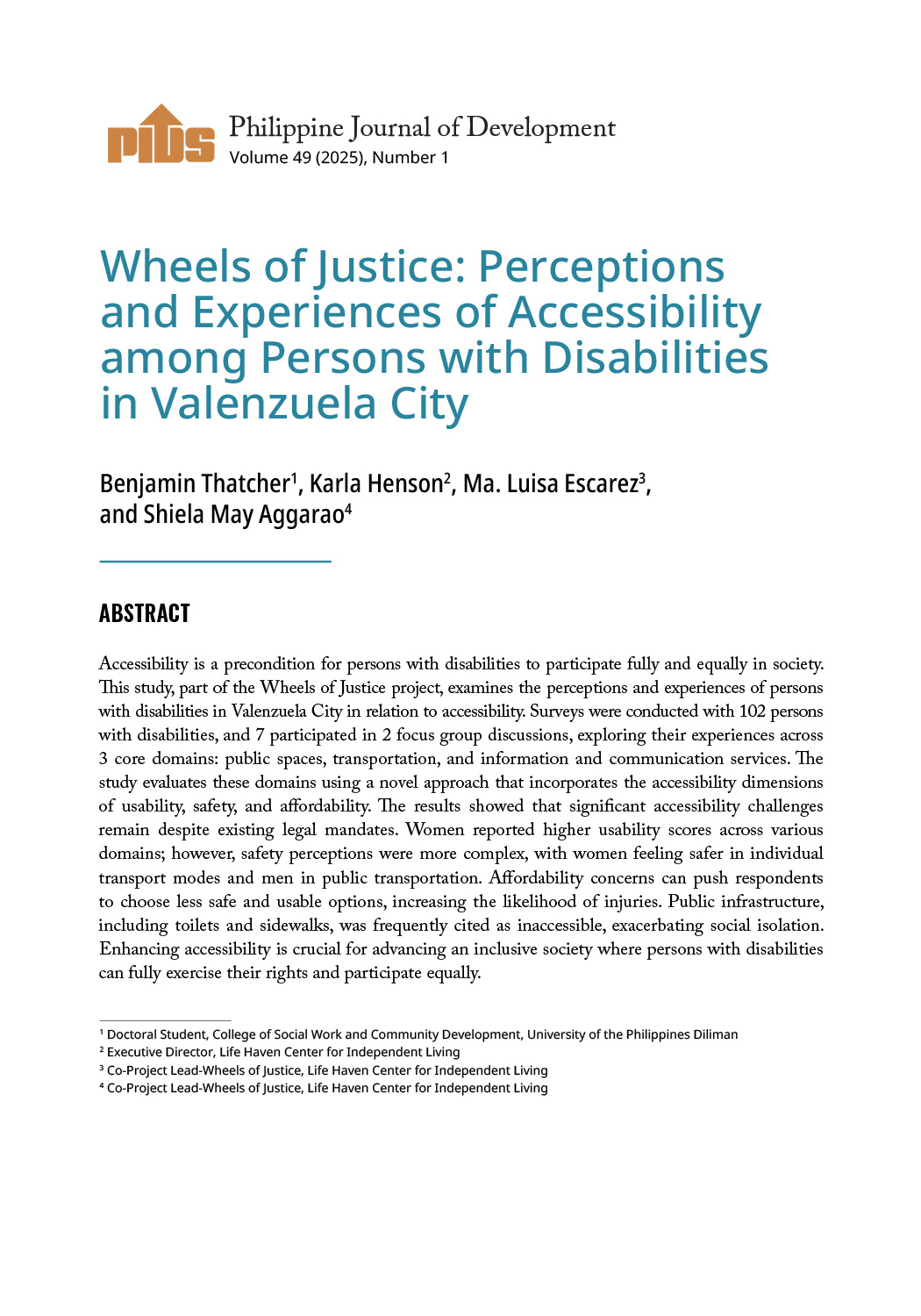With the Philippines continuously dropping from its rank as one of the most gender-equal countries in the world over the last two years, Dr. Celia Reyes, new president and first female head of state think tank Philippine Institute for Development Studies (PIDS), urged advocates and stakeholders alike to step up efforts on gender equality to regain the country’s status.
Citing the latest Global Gender Gap Report of the World Economic Forum during “Making Change Work for Women: A Policy Dialogue” organized by the Institute, Reyes said the Philippines has slid from 7th place in 2016 to the 10th spot last year. A total of 145 countries were ranked based on four categories, namely, labor force participation, educational attainment, health and survival, and political empowerment.
“While the country has actually maintained its top spot in Asia, we have gone down to the 10th place despite the increase in the absolute score. This is something we need to focus on not because we have retrogressed but because other countries are also doing a lot more in terms of making sure they have gender equality,” she said.
Reyes noted the dimensions that need improvement like the areas of leadership, labor force participation, and wage.
In leadership, for instance, Dr. Clarissa David, a professor at the UP College of Mass Communication explained that 60 percent of female employees constitute the first and second levels in government. However, this figure, she said, diminishes to 30 percent or less in terms of women representation in high-level appointive and elective offices.
David also shared that women leaders in both the Senate and the House of Representatives are typecast in handling committees such as cultural communities, women and gender equality, health, nutrition, education, and family planning, among others.
In terms of labor force participation, PIDS Senior Research Fellow Dr. Jose Ramon Albert, pointed out that the lower labor force participation among women is noticeable across all member-states of the Association of Southeast Asian Nations (ASEAN), and even in many countries across Asia and the Pacific. He said that men outnumber women by a large majority in work as laborers, farmers, trade, and unskilled workers.
Albert also revealed that in the Philippines, women tend to have a bigger share of vulnerable employment than men. According to recent data, about 7 in 20 men are in vulnerable employment compared to 8 in 20 for women. He stressed that those in vulnerable employment are less likely to have formal work arrangements, and are therefore more likely to lack decent working conditions, adequate social security, and voice. “Vulnerable employment is often characterized by inadequate earnings, low productivity, and difficult conditions of work that undermine workers’ fundamental rights,” Albert explained.
Another speaker, Maria Kristine Josefina Balmes, deputy director for operations of the Philippine Commission on Women, discussed issues that hamper the passage of women-related laws in the country. She said the existence of prevailing culture in both legislators and pressure groups like faith-based organizations and the church are usually the deciding factor in the passage of a specific bill. One of Balmes’ observations is that the majority of legislators are men and they usually bring in their conservative, patriarchal, and chauvinistic stance in the discussion of women-related bills.
To address these challenges, Balmes emphasized the need to inform and engage women as stakeholders in government programs and services, as well as to create and facilitate platforms to discuss good practices, gaps, challenges, and commitments in pursuing gender and development in order to strengthen the implementation of the Magna Carta of Women.
On the other hand, National Project Officer Maricel Aguilar of UN Women Philippines, talked about the plight of women in southern Philippines, who are often exploited by violent extremist groups as tokens or brides for terrorist fighters or used as couriers or conveyors of messages, thus endangering their lives.
“Given the current and emerging trends of violent extremism and terrorism, there is a need to revisit the law to include elements of protection and prevention from all forms of threats and violence, including sexual and gender-based violence,” she said. Aside from this, Aguilar stressed the need to engage religious leaders in intra- and inter-faith dialogues, and provide women with livelihood opportunities and educational programs. “If women are given these support, they will have the resources to bring their children to school and prevent them from being recruited or lured by violent extremist groups,” Aguilar concluded.












